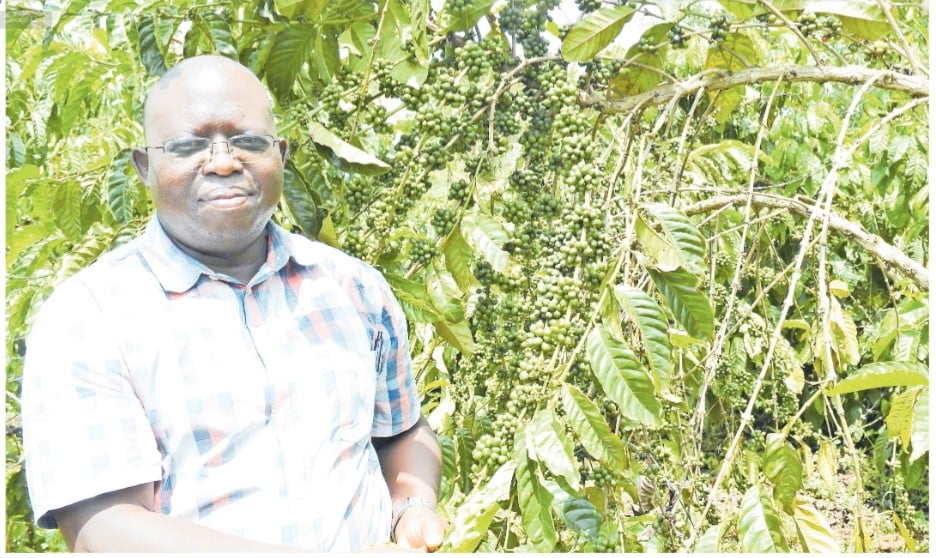
KCCA Executive Director Dorothy Kisaka speaks during the launch of rainwater harvesting facilities at Kitebi Secondary School in Kampala on April 18, 2023. PHOTO | FRANK BAGUMA
The sacking of Ms Dorothy Kisaka as executive director of the Kampala Capital City Authority (KCCA) was not a surprise to many Ugandans.
Critics say it had only been a matter of time.
Ms Kisaka assumed office on July 23, 2020 following an initial recommendation by President Museveni and subsequent approval by the Public Service Commission.
As per the KCCA Act 2011, her responsibilities, among other roles, included overseeing the delivery of quality services within Kampala City, promoting order and trade in the city, managing public funds of the Authority and providing technical advisory to the Authority.
Ms Kisaka replaced Ms Jennifer Musisi, who resigned in 2018.
The Tuesday press statement by State House said President Museveni was dismissing KCCA top officials following the Inspector General of Government’s (IGG) report on the Kiteezi landfill disaster. The other two sacked officials are Ms Kisaka’s deputy David Luyimbazi, and the KCCA Director of Public Health, Dr Daniel Okello.
Although Ms Kisaka’s sacking was precipitated by the August 10 Kiteezi incident that claimed the lives of 35 people and left property worth millions of shillings destroyed, analysts say there were also other underlying causes.
“I would not necessarily say her leadership and style of administration is to blame, we need to look at the general public administration system in the country and the resource allocation, which has been an issue for a very long time,” Ms Hannah Muzee told Daily Monitor in an interview yesterday.
Ms Muzee, a part time lecturer at Kyambogo University’s Department of Political Science and Public Administration, said Ms Kisaka could have suffered under the weight of these other factors, which were clearly beyond her control.
The lecturer references the time Ms Kisaka said the Authority was financially constrained to repair the poor roads in the city. This was during the height of the 2023 Kampala Pothole Exhibition on social media platform X (formerly Twitter) that was showcasing the awful states of roads in the capital.
Following the heat from the exhibition, Ms Kisaka later told journalists that KCCA needed anywhere between Shs75b and Shs100b annually to effectively maintain roads yet they only got Shs26b for the task.
Despite telling Ugandans that the Authority was financially constrained, only results mattered to them. Ms Kisaka, to a section of other Ugandans, was seen as not aggressive enough to push and demand resources for running activities designated under her docket.
“That job needed an aggressive and hard-hitting personality, which I did not see in Dorothy. Lack of these traits, I believe, also contributed towards her downfall. You cannot just continue playing softball when your house is under fire. She needed to have fought harder,” Mr Robert Ssali, a student of International Relations and Diplomacy, said.
Other factors
A lawyer by profession, Ms Kisaka practiced her trade with Kiyimbi-Kisaka and Company Advocates between 1999 and 2014. Before taking the KCCA job, Ms Kisaka was a senior presidential adviser at the Office of the Prime Minister (OPM) where she coordinated both political and non-political actors to implement public policy. Previously, she had served as commissioner in the Electoral Commission between 2010 and 2014.
Despite having served in different capacities at respective entities, political analyst Mr Mwambutsya Ndebesa said the KCCA shoes were still too big for her to fill.
“I believe Kisaka is a victim of circumstances. Without adequate technical knowledge and experience of managing a big organisation, she was given the role that was not even advertised,” Mr Ndebesa said.
“Sometimes to get the best people for these demanding jobs, advertisements need to be made so that the most competent and suitable candidates are hired,” he added.
Despite the heavy criticism surrounding her competence for the job, Ms Kisaka, in a July 10, 2023 report submitted to the Minister of Kampala Metropolitan Affairs, Ms Minsa Kabanda, partly outlined her achievements from the Financial Year (FY) 2020/2021 and FY2022/2023.
Some of these included the reconstruction of 43.2km of city roads with funding from the World Bank, construction of 10.45km of various community drains in the respective divisions of the capital, expansion of street lighting by 535 lights and decluttering several frontages of streets with the help of police and the army.
Ms Kisaka pointed out these accomplishments at the time she was seeking a second term as KCCA boss. In the same report, she singled out some challenges, including financing and low staffing levels as some of them. She subsequently got her job back following a directive from President Museveni to renew her contract.
Prof Sabiti Makara, a lecturer in the Department of Governance and Public Administration at Kabale University in western Uganda, said the expectations of Ugandans remained very high following the renewal of her contract. Ms Kisaka, however, fell short on deliverance.
“You say you have done this and that, but look at our Kampala today, there is nothing much to be proud of. The roads and drainage remain poor,” Prof Makara said, adding: “Ugandans continue to complain.”
The fights at KCCA are also partly to blame, Prof Makara said.
“Every other time you hear of camps, ego clashes, leaders pointing fingers and whatnot. Such a reputation was looking bad on Dorothy. To Ugandans, she had failed to bring her house to order,” Prof Makara said.








